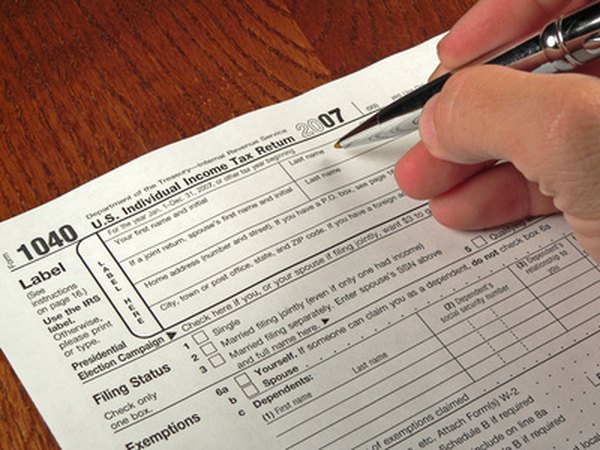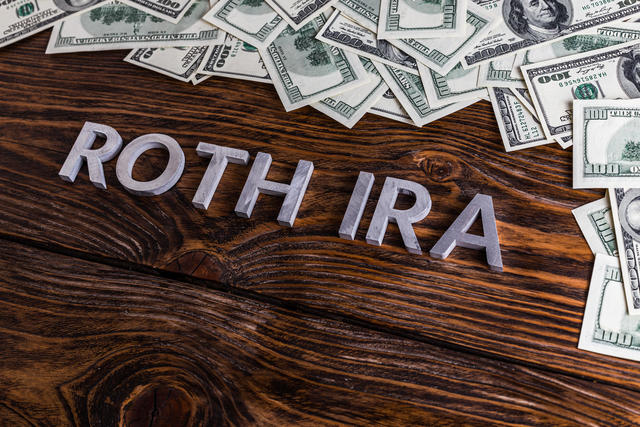The main benefit of a Roth IRA is that, provided you adhere to the restrictions, withdrawals will never be considered taxable income. Withdrawals are subject to different regulations depending on whether the funds come from your initial deposit or interest earned on the account balance. This page details the circumstances in which your income may be taxed and the steps you may take to avoid this.
The Tax Treatment of Roth IRAs

Roth IRA contributions are not eligible for an immediate tax deduction as they are with a standard IRA. One, the money used to make them has already been taxed. Therefore the money is considered "after-tax" in financial jargon.
However, if you follow the regulations, you can take tax-free withdrawals in the future from your retirement account. Your Roth IRA earnings will continue to grow tax-free until you withdraw them, just like in a standard IRA.
Earnings in a traditional IRA are deemed tax-deferred since they are subject to taxation only when the account holder withdraws the funds. But the money you make in a Roth IRA may not be taxed.
Avoiding the 10% Early Withdrawal Tax Hit
Thanks to the tax code, the 10% early withdrawal penalty that applies to both regular and Roth IRAs has a few loopholes. Examples of such phrases are:
- Total and permanent incapacity
- First-time homebuyer withdrawals of up to $10,000 and qualifying birth and adoption withdrawals of up to $5,000 are both allowed.
- Cash Withdrawals for Eligible College Expenses
- Payments received "for your life or the combined lifetimes of you and your selected beneficiary" in a series of equal monthly payments.
Details on Eligible Transfers
For starters, Roth IRA contributions and conversions not subject to taxation can be withdrawn anytime without tax or penalty. The 10% early distribution penalty may apply to distributions made from taxable conversion amounts.
Profits distributed as a non-qualified distribution are taxed and may be hit with an early distribution penalty of 10%. Which distributions are tax- and penalty-free depends on their status as "qualified." A distribution must satisfy the following classes of conditions2 to be considered qualified.
What Is A Qualified Distribution?

According to the Internal Revenue Service (IRS), a "qualified distribution" is a withdrawal or distribution that does not trigger any tax or penalty. A qualified distribution from a Roth IRA satisfies the five-year holding period rule and the age 5912 threshold (or an exception). It is important to remember that contributions made to a Roth IRA are never subject to taxes again when withdrawn.
Do Roth IRAs Have Required Minimum Distributions?
Roth IRAs are not subject to RMDs until you reach age 72, unlike standard IRAs. For as long as you live, you don't have to take any money out of your initial account if you're the original owner. 5 There may be an exemption for a surviving spouse, but your beneficiary or beneficiaries must take all the money from the account when you pass away.
What's The Roth IRA Contribution Limit?
In 2022, the maximum amount you may put into a Roth IRA depends on your age: $6,000 if you're less than 50 or $7,000 if you're 50 or over. It's important to remember that there are income restrictions on Roth IRA contributions.
Can I Get A Tax Break For Investing In A Roth IRA?
Since Roth IRA contributions are made using after-tax dollars, the taxpayer is not eligible for a deduction in the year the contribution is made. Think about opening a conventional IRA if you want to reduce your taxed income.
Can Converting A Traditional IRA To A Roth Save Me Tax?
No. Taxes normally required when withdrawing money from a standard IRA would instead be paid when the account is converted to a Roth IRA. This strategy might help you save money on taxes and see your profits rise tax-free if you're in a lower tax bracket or the market is experiencing a downturn.
Can A Roth IRA Keep Your Estate Out of Probate?
Yes. Money left to beneficiaries from a Roth IRA does not need to go through probate like money left from a standard retirement account or life insurance earnings. This streamlines the distribution of your estate's assets to your heirs, speeds up the settlement process, and perhaps saves you money.
Final Verdict
Contributions to a Roth IRA are tax-free and can be withdrawn at any time without penalty. If you have a Roth IRA and are 5912 or older, you can withdraw your contributions and gains tax-free. You may owe taxes and a 10% early withdrawal penalty if you don't.



